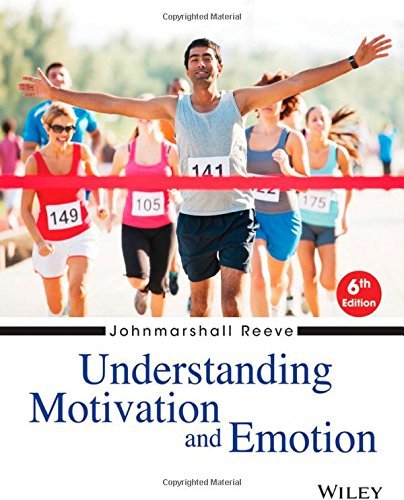
By Johnmarshall Reeve – Understanding Motivation and Emotion (6th Edition) (2014-11-18) [Paperback]


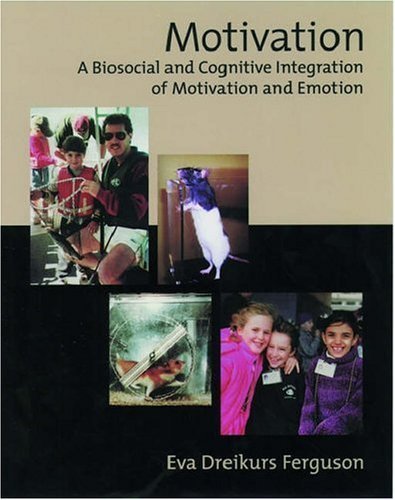
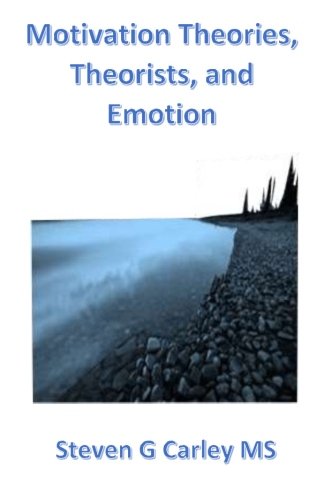
“Motivation Theories, Theorists, and Emotion” profiles theories of motivation and goes into detail pertaining to personal constructs and incentives. Sources of motivation can be both internal or external as the relationship between motivation and behavior is explained by the sequence of motivation. Enjoy a brief description of both theories of emotion and motivation.

Motivation and Emotion provides an explanation of emotional experience and aspects of human behaviour using psychological, physiological and alternative approaches. The brain mechanisms that govern motivations are discussed and questions such as ‘Why don’t we eat ourselves to death?’ and ‘How do we know we are thirsty?’ are answered.
Phil Gorman is an A-Level teacher at Stafford College, UK, and a chief examiner for the Edexcel A Level Examination Board.
The Routledge Modular Psychology series is a completely new approach to introductory level psychology, tailor-made for the new modular style of teaching. Each book covers a topic in more detail than any large textbook can, allowing teacher and student to select material exactly to suit any particular course or project. Especially written for those students new to higher-level study, whether at school, college or university, the books include the following designed features to help with technique:
Series editors: Cara Flanagan is a Reviser for AS and A2 level Psychology and an experienced teacher and examiner. Philip Banyard is Associate Senior Lecturer in Psychology at Nottingham Trent University and a Chief Examiner for AS and A2 level Psychology.
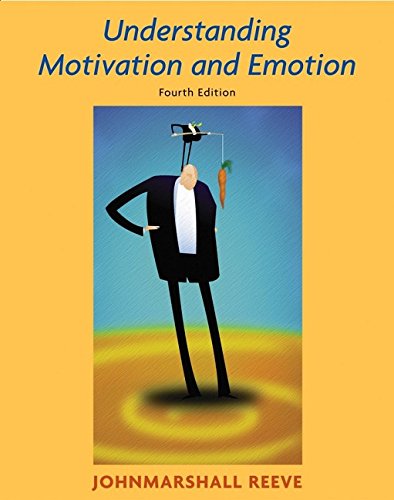
Gain a greater understanding of motivation, where it comes from, how and why it changes over time, and how motivation can be increased and its quality enhanced. Learn how to apply the principles of motivation in such settings as schools, the workplace, the athletic field, counseling, and one’s own personal strivings. Features:Comprehensive coverage: all aspects of motivation study, including biological, cognitive, social, etc.Practical perspective on motivation study: numerous how-to applications that show how to motivate yourself and others.Clear and concise writing style: translates the research in ways that are easy to understand.

Understanding Motivation and Emotion, 6th Edition helps readers understand motivation; where it comes from, how and why it changes over time, and how motivation can be increased. The book also shows how to apply the principles of motivation in applied settings, such as in schools, in the workplace, on the athletic field, in counseling, and in one’s own personal life.
Reeve’s engaging writing captures the excitement of recent advances in the field to show the reader what contemporary motivation psychologists are excited about. He also uses effective examples and explains how motivation study can be applied to readers’ daily lives.
By combining a strong theoretical foundation with current research and practical applications, Reeve provides readers with a valuable tool for understanding why people do what they do and why people feel what they feel.

This unique book provides a comprehensive study of emotion within a modern evolutionary perspective. Motivation and emotion are presented within an integrated approach that assumes biological and psychological causes, including evolution, neuroscience, endocrinology, human development, and culture. Motivation and Emotion Presents a wealth of modern evidence integrating neuroscience and endocrinology into the study of motivation and emotion. The book provides a variety of photographs of facial expressions showing emotions from people of diverse cultures as well as nonhuman primates. It also discusses modern interactive explanations for specific behaviors, rather than dull, historical perspectives. For example, human affect is explained as a response to social events and stress, resulting in psychophysiological consequences. An essential reference for any professional in sociology or psychology.
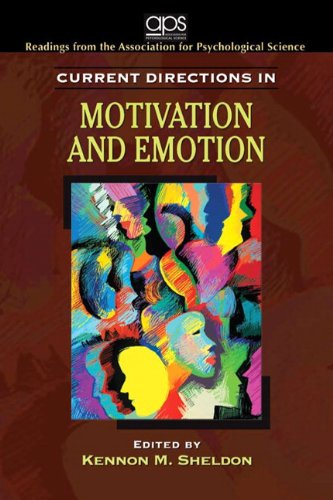
This updated and exciting reader includes 25 articles that have been carefully selected for the undergraduate audience, and taken from the very accessible Current Directions in Psychological Science journal. These timely, cutting-edge articles allow instructors to bring their students real-world perspective-–from a reliable source–-about today’s most current and pressing issues in abnormal psychology.
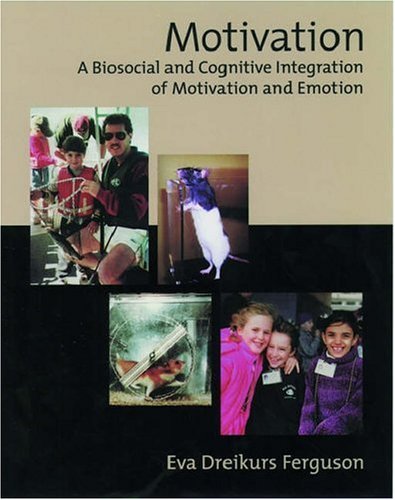
Motivation: A Biosocial and Cognitive Integration of Motivation and Emotion shows how motivation relates to biological, social, and cognitive issues. A wide range of topics concerning motivation and emotion are considered, including hunger and thirst, circadian and other biological rhythms, fear and anxiety, anger and aggression, achievement, attachment, and love. Goals and incentives are discussed in their application to work, child rearing, and personality. This book reviews an unusual breadth of research and provides the reader with the scientific basis for understanding motivation as a major variable in human and animal life. It also offers insights that can be applied to immediate and practical problems. Various areas are examined in depth, such as the relationships between reward, incentives, and motivation. The discussion of biological rhythms shows that humans and animals are more alert at certain times than others, and these rhythms also affect performance. The topics in the book span the ways in which motivation connects with many aspects of contemporary psychology. Basic issues of design and methodology, details of research procedures, and important aspects of definition and measurement, are discussed throughout the book.
Motivation: A Biosocial and Cognitive Integration of Motivation and Emotion examines the way motivation functions and how it interacts with other important variables: physiological processes; learning, attention, and memory; rewards and stressors; the role of culture as well as species characteristics. The presentation makes clear in what important ways motivation, as a construct, contributes to the scientific understanding of behavior. The book offers advanced undergraduate and graduate students a broad overview of motivation. It also is of value for the professional psychologist who seeks an integrated overview of the classical and contemporary literature in the field of motivation. The book provides information on a broad range of issues and thus can be used also as supplementary reading for courses on cognition and biological as well as social psychology.